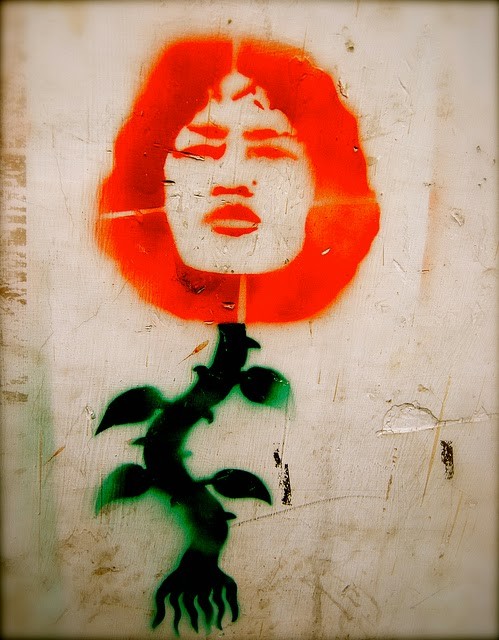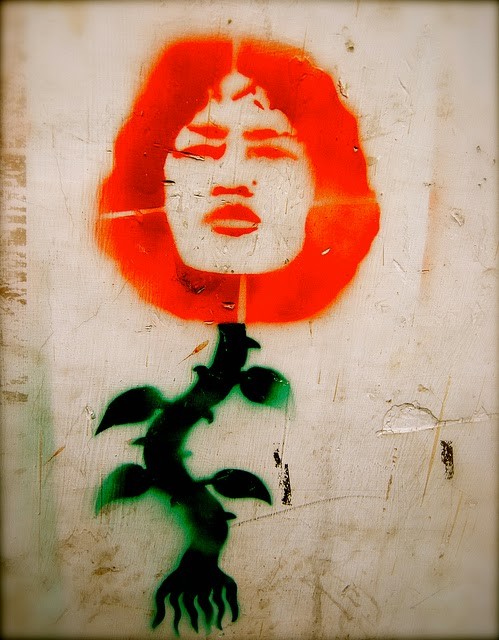She is Gandhian no. 1 of the nation, the captain of a single-woman non-cooperation movement, without any support from any big name or big money.
I never voted as I had lost faith in democracy, but
the rise of the new anti-corruption party, Aam Aadmi Party, changed my
thinking.
She has now expressed interest in meeting with PM Modi. She is very hopeful that her single point request: repealing the Armed Forces Special Powers Act will be granted (we are not hopeful at all, in simple terms the Army has a veto and will exercise it).
Najma Heptullah, the minorities minister and grand niece of freedom fighter Abdul Kalam Azad, has created a firestorm by saying that muslims in India are too large a population to be considered a minority (unlike Parsis). As long as we are in blunt talking mode, we should also acknowledge that Hindus are not one unified block either (unlike what the Hindutva movement would have us believe).
Not only do we have Hindu minorities who face discrimination from the Hindu majority (Bihari migrants in Maharashtra, for example) but some Hindu groups are actually in a state of opposition to actions of the Indian state. Most of these groups are in the North-East and the most prominent amongst them is the United Liberation Front of Axom (ULFA).
……..
An Indian activist who has been on hunger strike for over 13
years said on Wednesday she was pinning her hopes of finally leading a
normal life on new Prime Minister Narendra Modi.
Irom
Sharmila, 42, who is force-fed by a drip through her nose, said she
wanted to meet Modi in hopes of ending the military’s alleged human
rights abuses in her northeastern home state of Manipur.
Escorted
by more than a dozen police officers, Sharmila appeared in a court in
New Delhi in connection with long-running charges against her of
attempting to commit suicide, a crime in India.
Sharmila told a
judge that she wanted a “settled life as others do” but would not break
her fast until a controversial law that covers large parts of restive
northeastern India and Kashmir was repealed
…….
[Ref. Wiki]
November 2000, in Malom, a town in the Imphal Valley of Manipur, ten civilians were
shot and killed while waiting at a bus stop. The incident, known as the
“Malom Massacre,” was allegedly committed by the Assam
Rifles, one of the Indian
Paramilitary forces operating in the state. The victims included Leisangbam
Ibetombi, a 62-year old woman, and 18-year old Sinam Chandramani, a 1988
National Child Bravery Award winner.
who was 28 at the time, began to fast in protest of the killings, taking
neither food nor water. As her brother Irom Singhajit Singh
recalled, “It was a Thursday. Sharmila used to fast on Thursdays since she
was a child. That day she was fasting too. She has just continued with her
fast”
days after she began her strike, she was arrested by the police and charged
with an “attempt to commit suicide”, which is unlawful under the Indian Penal Code (IPC), and was later
transferred to judicial custody. Her health deteriorated rapidly, and nasogastric intubation
was forced on her in order to keep her alive while under arrest.
Sharmila has been regularly released and re-arrested every year since her
hunger strike began under IPC section 309. The law declares
that a person who “attempts to commit suicide … shall be punished with
simple imprisonment for a term which may extend to one year [or with fine, or
with both].”
primary demand to the Indian government is the complete repeal of the AFSPA which has been blamed for violence in
Manipur and other parts of northeast India.
Sharmila had become an “icon of public resistance.” Following her procedural release on 2
October 2006 Irom Sharmila Chanu
went to Raj Ghat, New Delhi, which she said was “to
pay floral tribute to my idol, Mahatma Gandhi.”
October, she was re-arrested by the Delhi police for attempting suicide and was
taken to the All
India Institute of Medical Sciences, where she wrote letters to the
Prime Minister, the President, and the Home Minister. At this time, she met and won the
support of Nobel-laureate Shirin Ebadi, the
Nobel Laureate and human rights activist, who promised to take up Sharmila’s
cause at the United
Nations Human Rights Council.
she invited anti-corruption activist Anna Hazare to visit Manipur, and Hazare sent two representatives to
meet with her.
eleventh year of her fast, Sharmila again called on Prime Minister Manmohan Singh to repeal the law.
October 2013 Amnesty India issued a press release recognising Irom Sharmila as
a “‘Prisoner of Conscience’, who is being held solely for a peaceful
expression of her beliefs.”
also offered to contest Lok Sabha polls by Aam Aadmi Party leader Prashant Bhushan from Inner
Manipur under his party’s banner through Just Peace Foundation (JPF), a
solidarity group supporting Sharmila’s struggle.
rejected Aam Aadmi Party’s offer to contest the Lok Sabha polls and said that
“Though I support AAP, I rejected the offer as I’m just a protester not a
politician.” She also showed her moral support to the party and said
“If I am allowed to vote, I will cast my vote in favour of the AAP which I
am confident will restore the rule of democracy.”
offers on contesting Lok Sabha polls ,a JPF trustee said that “Politics is
not a cup of her (Sharmila) tea and she even called politicians ‘shameless
people’ for failing to scrap AFSPA despite their countless promises.”
she showed willingness to cast her vote and submitted an application
expressing her desire and she mentioned that “I never voted as I had lost
faith in democracy, but the rise of the new anti-corruption party, Aam Aadmi
Party, changed my thinking.” But she was not allowed to cast her vote as
per the law. An Election Commission official explained the reason stating that
under Section 62 (5) of the Representation of the People Act, 1951, a person
confined in jail cannot vote.
……
Link: http://www.dawn.com/news/1109200/13-year-long-hunger-striker-pins-hopes-on-modi
…….
regards

